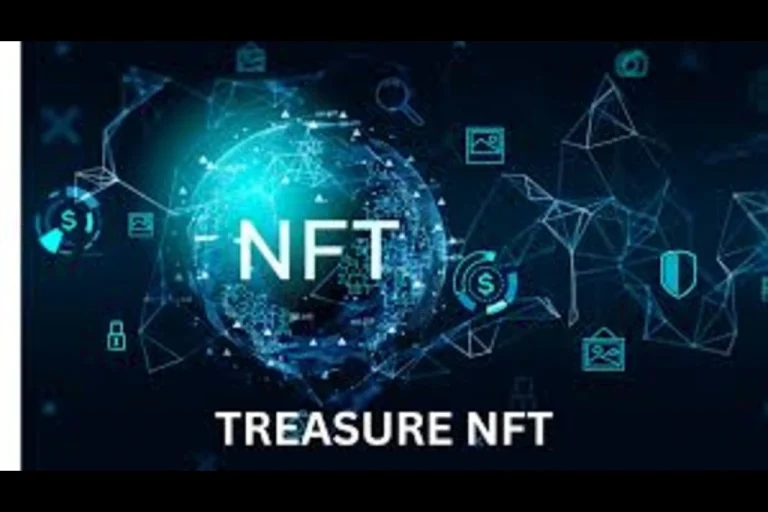The NFT world has opened up exciting opportunities for artists, collectors, and investors. But with every new innovation, there are always bad actors looking to cash in on the hype. One such name that has raised serious concerns is Treasure NFT which is a platform promising sky-high profits through NFT trading and AI-powered investments.
At first glance, Treasure NFT markets itself as a cutting-edge Web3 platform, offering daily returns of 4.3% to 6.8% and monthly profits of up to 30%. It even claims an AI-driven trading system and referral rewards. Let’s learn about NFT and know the reason why it is widely criticized.
What is Treasure NFT?
Treasure NFT claims to be a decentralized NFT trading platform that uses advanced AI to maximize profits. Unlike well-known NFT marketplaces like OpenSea or Rarible which focus on real asset trading, Treasure NFT’s entire business model revolves around guaranteed high returns and a referral-based bonus system.
Here’s what they promise:
| Feature | Details |
|---|---|
| Daily Profits | 4.3% – 6.8% |
| Monthly Returns | Up to 30% |
| Referral Earnings | Earn more by referring friends |
It sounds like a dream investment right? But here’s the problem:
Such high returns are mathematically unsustainable unless new investors keep joining, making it eerily similar to a Ponzi scheme.
Major Red Flags: Why You Should Stay Away from Treasure NFT
Unrealistic Profit Promises
Legitimate investments come with risks. Treasure NFT’s daily and monthly return rates are highly unrealistic which are designed to trick inexperienced investors.
If an investment opportunity promises you ‘risk-free’ profits you should run the other way!
Zero Transparency
Authentic blockchain projects excels on trust and openness, but Treasure NFT is covered in mystery:
| Red Flags | Details |
|---|---|
| Founders & Developers | No information about its founders or developers |
| AI Trading System | No clear explanation of how their ‘AI trading system’ works |
| Roadmap & Partnerships | No official roadmap, partnerships, or regulatory approval |
Without transparency, investors have no way to verify the legitimacy of the platform.
Referral-Based Earnings
Treasure NFT heavily pushes its referral program, where you earn bonuses by bringing in new investors.
While referral programs exist in many industries, Treasure NFT’s focus on recruitment over actual NFT trading is a huge red flag. This setup closely mirrors pyramid schemes, where older users profit from new sign-ups—until the whole thing collapses.
Users Report Withdrawal Problems
A trustworthy platform never restricts access to user funds. But here’s what Treasure NFT investors are facing:
| Issues | Details |
|---|---|
| Withdrawal Problems | Withdrawals being delayed or denied |
| Frozen Accounts | Accounts getting frozen without explanation |
| Cash-Out Requests | Rejected cash-out requests with no response from support |
Fake Reviews & Manipulated Credibility
Treasure NFT’s online reviews seem too good to be true. Many five-star reviews:
| Fake Reviews Indicators |
|---|
| Come from accounts with no prior activity. |
| Use generic, exaggerated praise about ‘guaranteed profits’. |
| Contradict real users who report missing funds and withdrawal failures. |
Scammers often use fake reviews to trick new investors into believing their platform is legitimate.
Nonexistent Customer Support
A real business takes customer concerns seriously. Treasure NFT, however, has:
| Customer Support Issues |
|---|
| No response to withdrawal complaints |
| Limited or ignored customer support |
| No proper assistance for locked accounts |
If a platform avoids communication, that’s a huge warning sign.
Legal & Regulatory Red Flags
Treasure NFT claims to hold an MSB license from FinCEN (U.S.). While this may sound impressive, an MSB license only ensures compliance with anti-money laundering laws but it does not validate a business model.
Authorities in India and West Bengal are already investigating Treasure NFT for possible fraud.
If the platform was truly legitimate, why is it under legal scrutiny?
How Treasure NFT is Scamming People
Treasure NFT follows the classic Ponzi scheme playbook:
-Users deposit funds with the promise of quick returns
-Early investors receive small payouts to build trust
-The referral system ensures a steady flow of new investors
-When recruitment slows, withdrawals are blocked
-The platform collapses, leaving most investors at a loss.
Although Treasure NFT claims to be involved in NFT trading, there’s little evidence of actual market activity. The NFT angle is just a cover-up for a Ponzi scheme.







